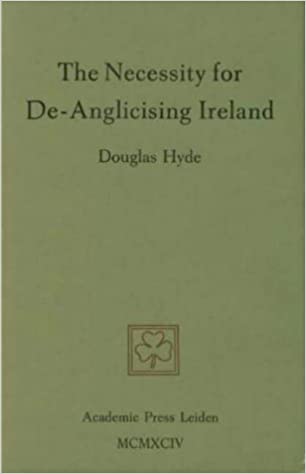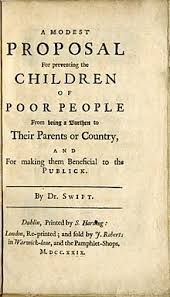Duffy, Segerson, and Hyde’s “The Necessity for de-Anglicising Ireland” fiercely opposes the assimilation of Ireland into English culture. It remarks upon the Irish peoples’ tendency to “… apparently hate the English, and at the same time [continue] to imitate them… to clamour for recognition as a distinct nationality, and at the same time [throw] away with both hands what would make it so” (Duffy, Segerson, and Hyde 1904). The authors outline the importance of upholding the originality of Irish culture, and the urgent need to stray away from imitation of the English.

While reading the short summary of the life and works of Jonathan Swift, I reflect upon the fact that this anti-assimilation sentiment stems from a long-standing issue of Irish-English relation. The proclamation of similar ideals from the 1700’s Jonathan Swift and the 1900’s Duffy, Segerson, and Hyde reveals the persistence of struggle against English overwhelm. English repression of anything unlike itself manifests in developments such as Ireland’s Penal Laws of the late 1600’s to early 1700’s, and sparks long-lasting discourse and unease in Irish society. After shifts in location and culture from English to Dublin-based institutions, Swift “[begins] to observe the poverty and injustices under which the Irish laboured” (Kilfeather 46). What follows is intense social critique that calls for rebellion against metaphorical consumption of Irish people and resources. In his life’s work, I see the same urging of the Irish people to resist conformity that resounds throughout “The Necessity for de-Anglicising Ireland.” Thus, the texts display the persistence of their society’s desire to protect the flame of their cultural distinction in the face of an entity that would encourage its extinction; this stems from English society’s perceived value of what Duffy et al. dubs “material prosperity” over culture and history, and the Irish people’s opposing stance (Duffy et al. 1904).


I found Duffy et al.’s discussion of Irish culture and the need to resist conformity so interesting. Even though it was written so long ago, it seems to still be a very relevant conversation in regards to Irish nationalism. The depth of English oppression in the 1600 and 1700s, particularly in regards to land loss in Northern Ireland, is seen today in the political separation of Northern and Southern Ireland. The Northern part was so well-inhabited with Protestant descendants of British colonists that they were able to remain a part of the UK while the Southern part became a free state. However, Southern Ireland’s fight for freedom is an example of the persisting desire for cultural distinction.